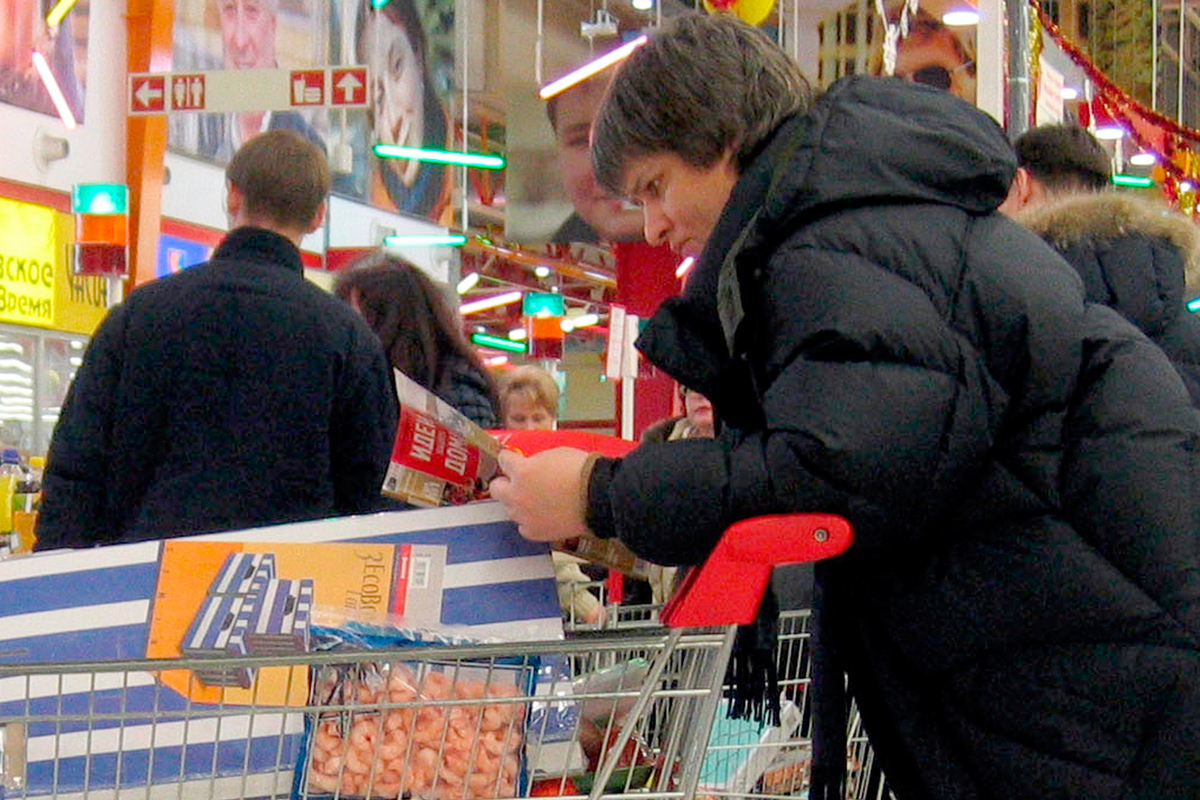The Ministry of Industry and Trade has made great progress in returning newspapers to supermarkets
[ad_1]

Large retail chains will increase the range and number of outlets for selling printed publications
The process of expanding the availability of Russian printing for customers in supermarkets is entering its final stage. Success in returning the press to store shelves was achieved thanks to the active interaction of publishers and retail market participants with the Ministry of Industry and Trade of the Russian Federation and the Ministry of Digital Development of the Russian Federation. This process was initiated by the Unions of Journalists of Russia and Moscow, and it was implemented thanks to the constructive position of the head of the Ministry of Industry and Trade, Deputy Prime Minister Denis Manturov. On March 19, the already achieved successes and existing agreements were discussed by the participants of the meeting on the issue of selling printed products in retail chains.
The need to return the printed press to the shelves of Russian stores became acutely felt back in 2021, when retailers, citing the fact that citizens almost stopped shopping during the coronavirus pandemic, decided to reduce the assortment of newspapers and magazines in their retail outlets. However, by December of this year the situation may change dramatically for the better, which will stimulate the development of both retail chains and the Russian publishing business, and will also benefit the end consumer, that is, all reading Russians. At a meeting in the Ministry of Industry and Trade with Secretary of State – Deputy Minister of Industry and Trade of the Russian Federation Viktor Evtukhov, the first results of negotiations with the management of leading retail chains in Russia were summed up. Agreements were reached to increase the range of printed products presented on store shelves, the number of retail outlets where the press can be purchased, and the number of regions where they are located. “We see the constructive position of our partners,” Evtukhov said during the meeting.
Let us recall that at the beginning of the year the Ministry of Industry and Trade sent a letter to retail market participants with a request to support the system of distributing periodicals and maintain interaction with distributors. The department strongly advised those retail chains that had already reduced their range of print media to restore it, and the rest to expand the number of items. The owners of retail outlets responded to the calls of the authorities and were even ready to partially change their business processes, adding shelves with printed products to those points where they were not provided for by the design of the trading floors. Such responsiveness was highly appreciated both by representatives of the Ministry of Industry and Trade itself and by publishers.
All participants should benefit from the changes taking place – the retail outlets themselves, their visitors, and the printed press. According to the head of the Moscow Union of Journalists, editor-in-chief of Moskovsky Komsomlets Pavel Gusev, who took part in the meeting, the paper version of any publication differs from the electronic version in the higher quality of its presentation of journalistic material, which encourages citizens to buy it. “We hope that the availability of the press, taking into account the efforts made by the Ministry of Industry and Trade, retail chains and publishers, will lead to stimulation of demand for the press in supermarkets,” he emphasized, adding that printed products have recently acquired particular importance. In the conditions of conducting SVO, in new regions and in border areas, the possibility of obtaining information using familiar gadgets is minimal due to security reasons or lack of communication. “Both MK, Komsomolskaya Pravda, and AiF – we send free press in thousands of copies to these regions, which goes both to the population and to our armed forces, for which the Ministry of Defense has already expressed gratitude,” Gusev added. “This is also one of the moments that shows that the country needs traditional printed products, that it cannot be abandoned, that it will not fail in any difficult situations.” The editor-in-chief of “MK” expressed the hope that in the future, an increase in circulation will bring the publishing business to a break-even point and will speed up the solution to the problem of delivery speed, which is why both retail and subscription will satisfy many readers. He noted that today the Ministry of Industry and Trade is solving the most important problem for both people and journalism in general. Newspapers and magazines are still the main means of propaganda and the opportunity to convey information to the absolute majority of the population in Russia. The journalistic community is certainly grateful to the leadership of the Ministry of Industry and Trade and Deputy Prime Minister Denis Manturov for their constructive approach and understanding of the industry’s problems.
“The measures taken by the Ministry of Industry and Trade together with the retailer to support the press are an unprecedented story, extremely important for the media distribution market, which has not happened for many years, especially relevant in connection with the events of recent years,” noted MK-APP General Director Tatyana Parshkova. — There are entire generations of people who grew up on the Russian press, but there are also those who passed by this stage, and now the opportunity is returning for the next generation of our citizens to grow up on the Russian press. We understand that the information that we publish is honest, accessible and necessary for residents of Russia.” The media today is the most important tool for shaping public consciousness, Parshkova added. She expressed confidence that the changes that have occurred in the market as a result of joint actions of the Ministry of Industry and Trade, publishers and retail chains will become a new page in the history of the distribution and development of print media in Russia.
[ad_2]
Source link






